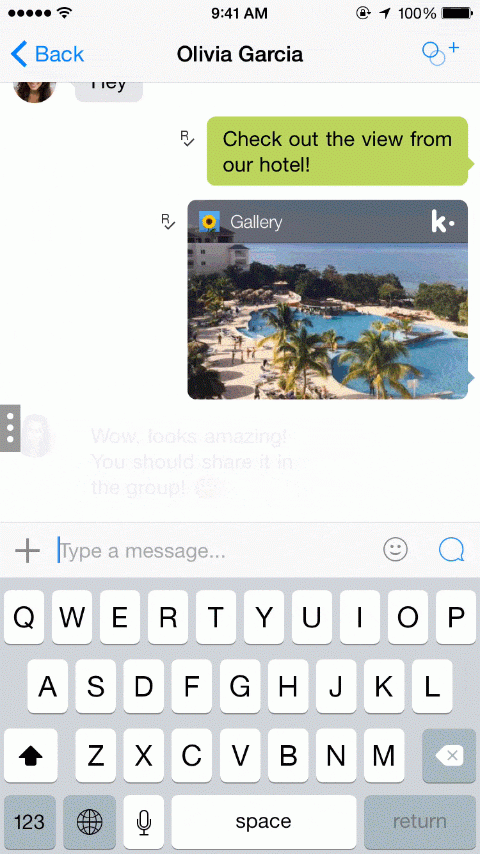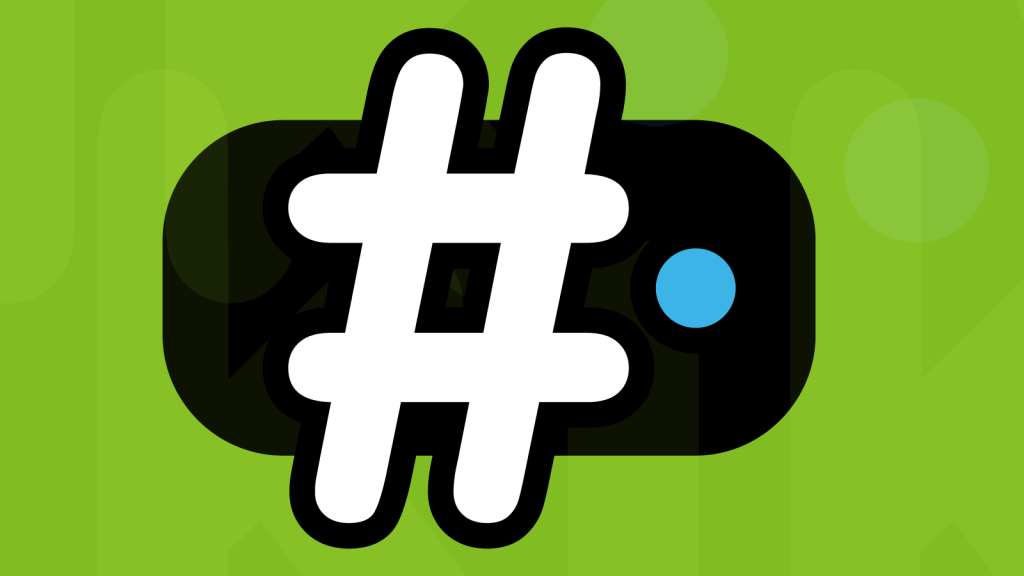Messaging app Kik is embracing one of the hallmarks of social networks after it introduced hashtags to its service. An update to the iOS and Android apps today turns hashtags into clickable links to chat groups where Kik believes like minded users can congregate to discuss topics, share photos/information and (potentially) meet new people.
It’s been a busy year for Kik. The Canadian company recently raised $38 million and completed its first acquisition (buying messaging app GIF Relay) — 2014 has seen it push into content and monetization with the launch of an in-app browser to bring the internet to chats, promoted chats to (finally) involve brands, and more safety features.
Now, with hashtags, Kik co-founder and CEO Ted Livingston said the company is back to the basics.
“Hashtags resumes our focus on the core chat experience. We’ve spent a lot of time building up content, and now we think we’ve nailed the platform,” Livingston told TechCrunch in an interview.
Livingston said the inspiration for hashtags comes from the early days of Facebook when users didn’t worry about their updates because the service was just used by friends. Nowadays, they need to keel a balance between fun and also what is acceptable in the eyes of employers, family and others, he said.
Hashtags is also a response to his own experience, too.
“Groups can be so annoying to make,” Livingston explained. “That really hit home when I got married this summer — it was super tedious to add everyone but important to have us all together.”
Now Kik users can communicate around a wedding, Christmas party or any other event by dreaming up a hashtag for their group of up to 50 users. Others enter the group once they click on the hashtag, or open it up for themselves, removing much of the friction involved in pulling large numbers of people together.

Beyond just events, Livingston said hashtags could be used to discuss any topic — right from cars, to football, to fashion. Users can make the hashtag obvious if they want to attract attention, or more obscure (and thus harder to find) if they want to keep things to those they know. (Kik provides group admin tools to ensure unwanted users can be booted out of groups, or banned, if necessary.)
There is even the potential for brands to get involved.
A handpicked few have stepped onto Kik’s platform with its promoted chat service — which lets them run a responsive but ultimately unmanned account to engage with users — and they could use hashtags to collect ideas, see what users are saying, or run existing social media campaigns on Kik. Hashtags are, after all, supported on multiple social networks beyond just Twitter these days.
Emulating WeChat
More generally, however, the introduction of hashtags follows Kik’s longer term goal of being a platform rather than merely an SMS replacement, such is the case with Facebook-owned WhatsApp.
Waterloo-based Kik claims to have the ears thumbs of the youth in North America. It doesn’t reveal monthly active user figures, but it recently passed 185 million registered users. Livingston said 68 percent of that number are based in the U.S. — which, Kik claims, means around 40 percent of Americans aged between 13-25 have an account on the service.
Livingston believes that this level of adoption, which continues to grow, gives Kik the chance to be the window into all things mobile for North America’s youth.
“Everyone is working towards emulating WeChat,” he said, echoing the sentiments of a recent op-ed on the Chinese messaging app. “WeChat powers your life via chat, you can do anything with chat at the core, even pay your bills.”
Payments is the next major step for Kik, and it is one that rival Snapchat has already taken and Facebook Messenger looks set to make soon.
Livingston didn’t reveal when Kik would enter the fray and introduce its own service, but we’d hazard a bet that the first half of next year might be an opportune time for Kik Pay to surface.
Hot Competition
Kik is up against some serious competition, though.
Snapchat is the darling of Silicon Valley. It has raised over $160 million for its innovative disappearing chat app, and has rebuffed advances from Facebook which reportedly included a $3 billion acquisition offer.
The company and CEO Evan Spiegel tend to adopt a high-profile approach, in total contrast to Kik and Livingston, and are also keen to turn their service into a mobile platform modeled on — you guessed it — WeChat.
Facebook may be a comparative veteran, but it is also funneling resources into the chat app race. Its acquisition of WhatsApp looks like a bid to own the next billion-user platform and push into the emerging market ecosystem, but Messenger is becoming a WeChat-like platform too.
Aside from this summer’s hiring of PayPal CEO David Marcus to lead the Messenger business, Facebook decoupled Messenger from its main app, is working toward payments and is cognizant of the way messaging apps have become a gateway to the mobile Internet in China and other parts of Asia.
Facebook is also focusing on group after creating a standalone app for Facebook groups, and also introducing new, pseudonymous forum app Rooms in October.






























Comment